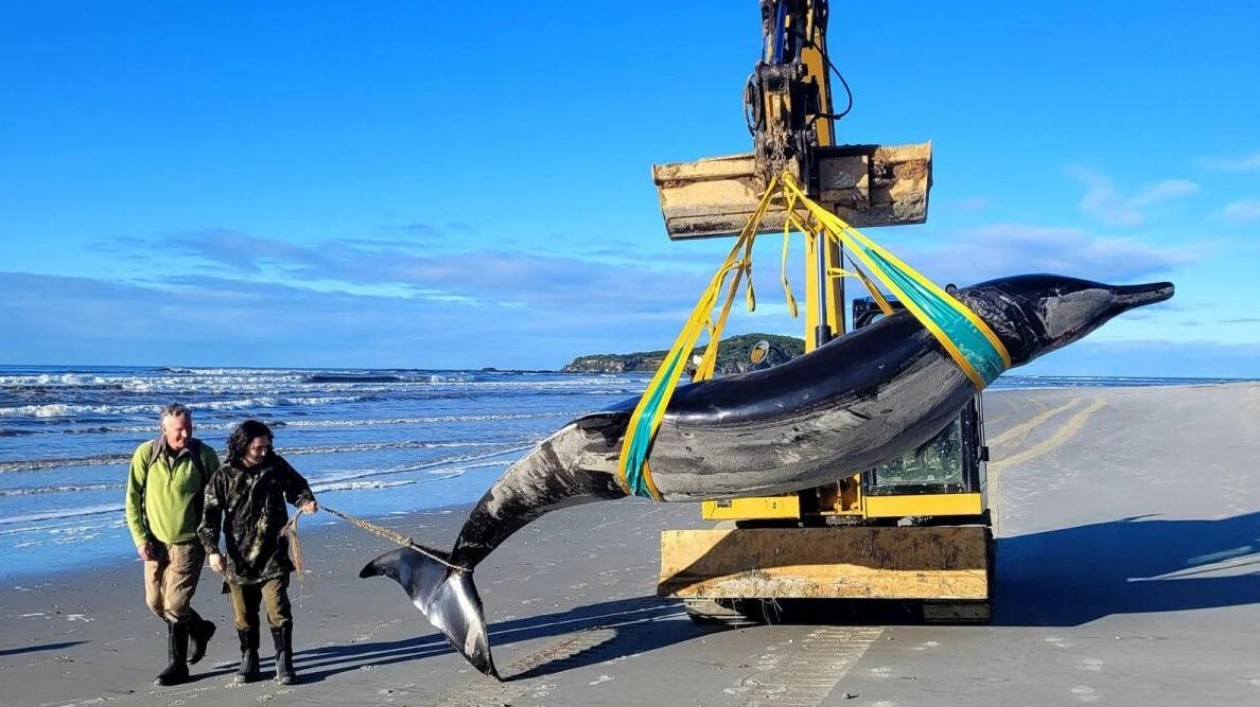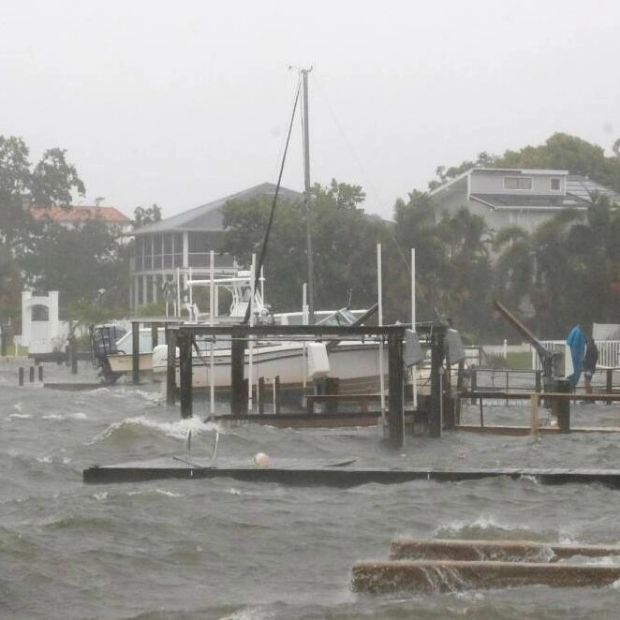Scientists report that a spade-toothed whale, a species never observed alive, has seemingly washed ashore on a New Zealand beach. The remains of this elusive, five-meter (16.4 foot) long, beaked creature were discovered near a river mouth in southern Otago province on July 4, according to government researchers. Marine-mammal experts from New Zealand's Department of Conservation and the national museum, Te Papa, identified it as a male spade-toothed whale. A DNA investigation is underway to verify its classification.
"Spade-toothed whales are among the least understood large mammalian species of modern times," said Gabe Davies, coastal Otago operations manager for the conservation department. Since the 1800s, only six specimens have been documented globally, with all but one from New Zealand, Davies noted in a statement on Monday. "From a scientific and conservation perspective, this is significant." The discovery provided the first opportunity to dissect a spade-toothed whale, as the find was sufficiently fresh. The species is described as "so rare that little is known about them."
The whale's body has been stored in cold storage, and genetic samples have been sent to the University of Auckland, which manages the New Zealand Cetacean Tissue Archive. It may take several weeks or months to process the DNA and confirm the final identification. "Given the rarity of the whale, discussions about next steps will take additional time due to their international significance," the conservation department stated. The species was initially described in 1874 from a lower jaw and two teeth collected from the Chatham Islands off New Zealand's east coast. These samples, along with skeletal remains of two other specimens found in New Zealand and Chile, allowed scientists to identify a new species.
Marine scientist Vanessa Pirotta said researchers would examine the whale's stomach contents, genetics, and compare this sample with previous ones. This could provide insights into the whales' behavior, population, and why they are so rare, Pirotta told AFP, likening the discovery to "hitting the jackpot." Due to the scarcity of specimens and lack of live sightings, little is known about the spade-toothed whale, which is classified as "data deficient" under New Zealand's Threat Classification System. The first complete specimen was from a mother and calf stranding in Bay of Plenty in 2010, with another stranding in 2017 in Gisborne adding one more specimen to the collection.






